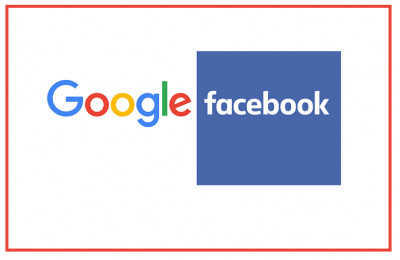Australia to make Google, Facebook pay for news. Can India follow suit?
Australia has decided to take the bull by the horns by introducing the Draft News Media Bargaining Code, which addresses the bargaining power imbalances between Australian news media businesses and digital platforms, specifically Google and Facebook.
Developed by the Australian Competition & Consumer Commission (ACCC), the draft code would allow news media businesses to bargain individually or collectively with Google and Facebook over payment for the inclusion of news on their services. According to the ACCC website, the code also includes a set of ‘minimum standards’ for:
- Providing advance notice of changes to algorithmic ranking and presentation of news;
- Appropriately recognising original news content; and
- Providing information about how and when Google and Facebook make available user data collected through users’ interactions with news content.
In a release issued, ACCC Chair Rod Sims said, “There is a fundamental bargaining power imbalance between news media businesses and the major digital platforms, partly because news businesses have no option but to deal with the platforms, and have had little ability to negotiate over payment for their content or other issues.”
He further said, “We wanted a model that would address this bargaining power imbalance and result in fair payment for content, which avoided unproductive and drawn-out negotiations, and wouldn’t reduce the availability of Australian news on Google and Facebook.”
While the draft code would initially apply only to Google and Facebook, other digital platforms may be added if they attain a bargaining power imbalance with Australian news media businesses in the future, the release stated.
Bargaining process between news media and digital platforms
The release further informed that under the code, news media organisations would notify Google or Facebook of their intention to begin bargaining over payment for content, as well as over any other issues they want to negotiate.
The code would require the digital platforms and news media businesses to bargain in good faith, and provides for a three-month negotiation and mediation process.
Media organisations could form groups to collectively bargain with the platforms as part of the code.
News media businesses and news content covered by the draft code
The Australian Communications and Media Authority (ACMA) would be responsible for determining eligibility of news media businesses to participate in the code.
Media businesses would be eligible if the online news content they produce investigates and explains issues of public significance for Australians; issues that engage Australians in public debate and inform democratic decision-making; or issues relating to community and local events.
In addition, they must adhere to minimum levels of professional editorial standards, and maintain a suitable degree of editorial independence; operate in Australia for the main purpose of serving Australian audiences; and generate revenue of more than $150,000 per year.
The code is not intended to capture any non-news media content, such as drama, reality television, entertainment content or sports broadcasting.
The implications
While the Australian government has decided to take on the tech giants, will it be viable for India to take a similar step? As of now, companies like Google, Facebook, Whatsapp have escaped from being under the purview of Indian laws stating that since the parent companies are based in the US and hence, are governed under the US laws.
There are no such provisions currently under the Indian Information Technology Act and Media Law on news media businesses’ capability to bargain with digital platforms like Google and Facebook over payment of ad revenues earned from the news of these news media businesses. The Australian Draft Code could provided valuable pointers for the Indian Government to make a move in a similar direction.
Meanwhile, the Australian Draft Code is currently with their Parliament and consultations are expected to conclude on August 28, 2020. Final legislation is expected to be introduced to Parliament shortly after conclusion of this consultation process.




Share
Facebook
YouTube
Tweet
Twitter
LinkedIn